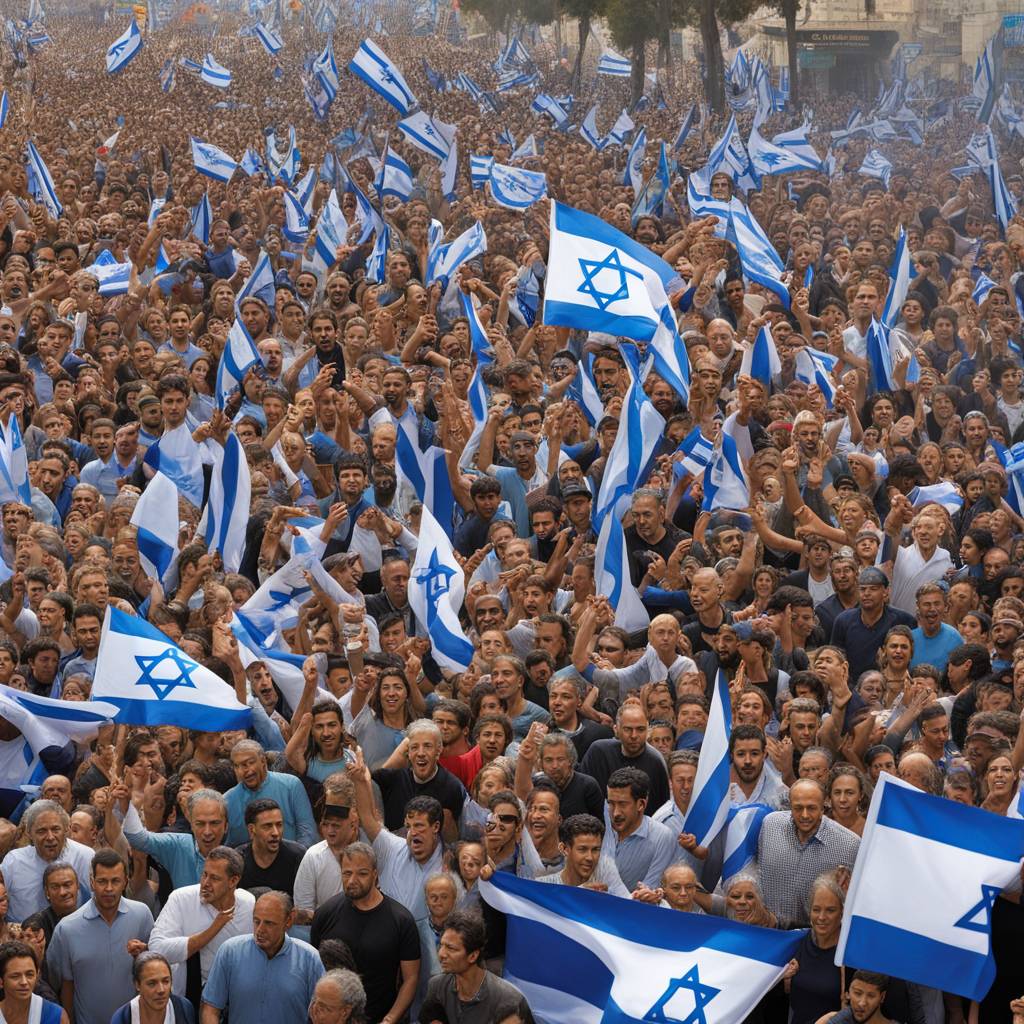Tens of thousands of Israelis gathered in central Jerusalem for the largest anti-government protest since the country went to war in October. Protesters called on the government to secure a cease-fire agreement to release the hostages held in Gaza by Hamas militants and to hold early elections. Prime Minister Benjamin Netanyahu has vowed to destroy Hamas and bring all hostages home, but these goals have been difficult to achieve. The families of the hostages believe time is running out and are increasingly critical of Netanyahu’s leadership, accusing him of hindering negotiations.
Many protesters blame Netanyahu for the failures of the Oct. 7 attack and believe that his attempted judicial overhaul weakened Israel’s position before the war. Additionally, there is concern about Netanyahu’s focus on political survival over the national interest, as he faces corruption charges making their way through the courts. Opinion polls show Netanyahu’s coalition trailing behind their rivals if elections were held today, but elections are not scheduled until the spring of 2026.
The anti-government protest in Jerusalem attracted a large crowd advocating for new elections to be held earlier than planned. Organizers promised to continue the demonstration for several days and called for new elections. Netanyahu, in a televised speech, expressed empathy for the families of the hostages and warned against calling for early elections, as he believed it would stall progress in the negotiations for the hostages’ release. While some families of hostages believe changing the prime minister now would not help bring their loved ones home, others feel that it is necessary.
Despite the divisions within Israeli society, Netanyahu’s governing coalition remains intact. The war has also highlighted other issues within Israel, such as resentment over the exemption of ultra-Orthodox men from military service. Netanyahu has been asked to present a new plan for a more equitable draft law, and tensions are rising among different segments of the population. The Bank of Israel warned of economic damage if large numbers of ultra-Orthodox men continue not to serve in the military.
In an Israeli airstrike on Gaza, a tent camp at a hospital was hit, killing two Palestinians and injuring 15 others. Thousands of people have sought shelter in Gaza’s hospitals, viewing them as relatively safe from airstrikes. The United Nations and humanitarian agencies warn of the possibility of famine in northern Gaza due to limited aid deliveries. Gaza’s Health Ministry reported a death toll of at least 32,782 since the start of the war, with concerns about civilian casualties and the need for increased aid. In the region, tensions remain high, with reports of violence in Lebanon and a stabbing incident in southern Israel.








